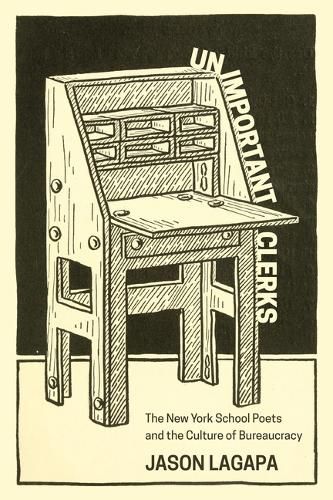Readings Newsletter
Become a Readings Member to make your shopping experience even easier.
Sign in or sign up for free!
You’re not far away from qualifying for FREE standard shipping within Australia
You’ve qualified for FREE standard shipping within Australia
The cart is loading…






Examines the ambivalent, often critical relationship of the New York School poets to bureaucratic culture and the conditions of work.
Unimportant Clerks identifies a central tension in the writing of the New York School poets: at times their poetry replicates the ideology of bureaucracy while at others-and more persistently-it repudiates related principles of efficiency, routine, and regimentation. Frank O'Hara, John Ashberry, Barbara Guest, James Schuyler, and Eileen Myles each had a clerical or secretarial job at the start of their professional careers. Heirs to Melville's Bartleby and antecedents of our own era of "quiet quitting," they by necessity channeled their creativity into everyday practices of refusing work. Drawing on a range of anti-work traditions, movements, and theories, Unimportant Clerks shows how their poetry reflects and contests a midcentury administrative ethos, anticipating contemporary critiques of precarity and the demands of office work.
$9.00 standard shipping within Australia
FREE standard shipping within Australia for orders over $100.00
Express & International shipping calculated at checkout
Examines the ambivalent, often critical relationship of the New York School poets to bureaucratic culture and the conditions of work.
Unimportant Clerks identifies a central tension in the writing of the New York School poets: at times their poetry replicates the ideology of bureaucracy while at others-and more persistently-it repudiates related principles of efficiency, routine, and regimentation. Frank O'Hara, John Ashberry, Barbara Guest, James Schuyler, and Eileen Myles each had a clerical or secretarial job at the start of their professional careers. Heirs to Melville's Bartleby and antecedents of our own era of "quiet quitting," they by necessity channeled their creativity into everyday practices of refusing work. Drawing on a range of anti-work traditions, movements, and theories, Unimportant Clerks shows how their poetry reflects and contests a midcentury administrative ethos, anticipating contemporary critiques of precarity and the demands of office work.